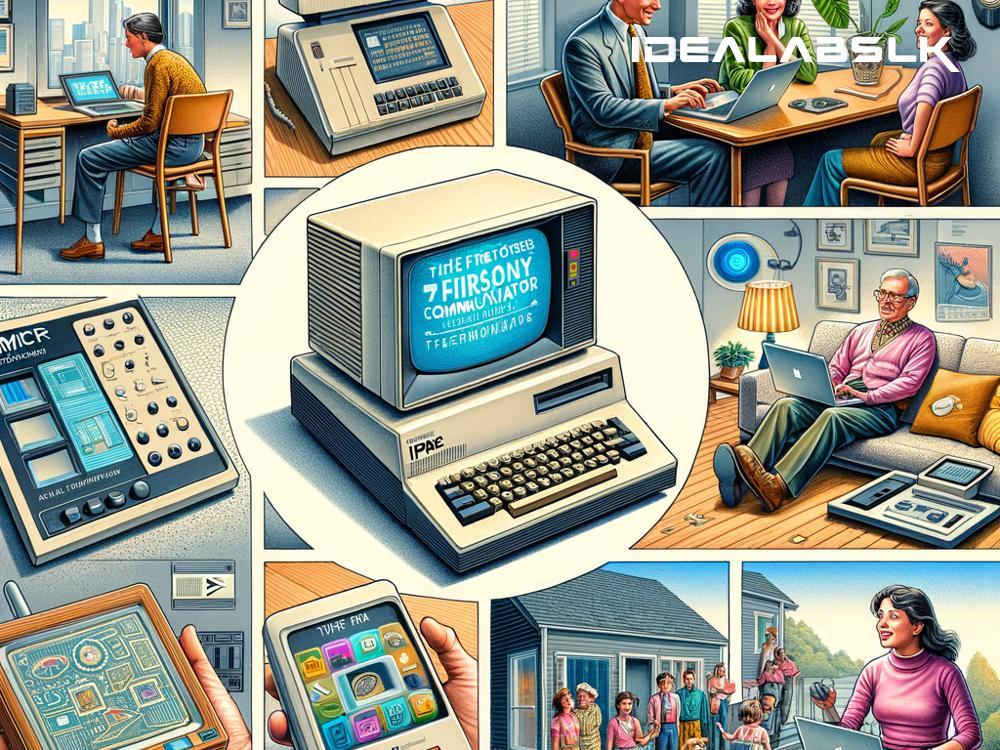The Dawn of Smart Devices: Transforming Our Lives and Technologies
In an era where technology is as essential as the air we breathe, it's fascinating to look back at the inception of smart devices. These little geniuses have revolutionized how we interact with the world around us. From the first smartphone to intelligent home gadgets, let's explore the pioneers of smart technology and how they've made an indelible mark on today's tech landscape.
The Birth of the Smart Era
The journey began in the 1990s with the Simon Personal Communicator, developed by IBM. It was the first device to merge the functionalities of a cell phone with that of a PDA (Personal Digital Assistant), allowing users to not only make calls but also send emails and faxes, and manage their calendars. Though bulky by today's standards and costing a hefty $1099, Simon was the torchbearer, illuminating the path for all smart devices that followed.
The Evolution of Smartphones
The true potential of smart devices was harnessed with the introduction of smartphones. The BlackBerry, released in the early 2000s, became the darling of the corporate world. It offered email services on the go, a novelty at the time, earning the nickname “CrackBerry” for its addictive nature. However, the game changed in 2007 when Apple introduced the iPhone, a device that combined a phone, an iPod, and an internet communicator all in one. Its introduction of the App Store in 2008 further revolutionized the smartphone industry by allowing third-party developers to create and distribute apps, thus laying the foundation for the massive ecosystem of mobile applications we have today.
Impact on Communication and Information Access
Smart devices have bulldozed the barriers to instant communication and information access. Before smartphones, getting directions, sending instant messages, or finding answers to random questions involved separate devices or even physical books. Now, all this information lies at our fingertips. We've moved from an era of seeking information to one where we're filtering it, thanks to the omnipresence of smart devices.
Smart Homes: A New Frontier
The advancement didn't stop with handheld devices. The concept of smart homes, once a futuristic dream depicted in sci-fi movies, is now a reality. The first significant leap came with the Nest Learning Thermostat in 2011, which adjusted the home's temperature based on the residents' habits and preferences. This paved the way for an array of smart gadgets like voice-activated assistants, smart lights, and security systems that can be controlled remotely. The impact of these smart home devices on energy conservation, security, and convenience is profound, marking a significant milestone in the evolution of domestic technology.
The Ripple Effect on Other Industries
The influence of smart devices extends beyond personal convenience; it has fundamentally changed several industries. In health care, smart wearables monitor heart rates, track sleep patterns, and even predict potential health issues. In education, tablets and smartboards have transformed teaching methodologies, making learning more interactive and accessible. Meanwhile, in the business world, smartphones and apps have given rise to new business models like the gig economy, exemplified by services like Uber and Airbnb.
The Future of Smart Technology
As we look towards the future, the potential for smart devices seems boundless. The evolution into the Internet of Things (IoT), where everyday objects are connected to the internet and each other, promises a world where our devices not only communicate with us but also amongst themselves, automating many aspects of our lives.
Conclusion
The journey of smart devices from the Simon Personal Communicator to today's multifaceted gadgets is a testament to human ingenuity. These devices have not only transformed our personal lives but also reshaped industries, spurred economic growth, and challenged societal norms. As we forge ahead, one can only imagine the further innovations smart technology will bring. What remains constant, however, is the profound impact these devices will continue to have on our world, fundamentally altering how we live, work, and interact with each other and our environment. In embracing these smart devices, we're not just adopting new tools; we're opening doors to limitless possibilities that will continue to shape the technological landscape for generations to come.

